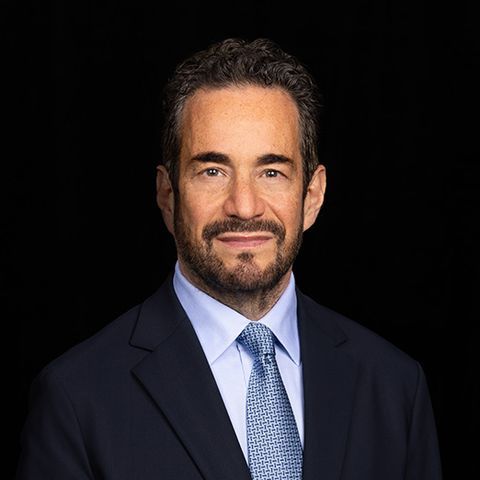Alerts
Enforcement Update: Insider Trading and COVID-19 Political Intelligence
March 25, 2020
The COVID-19 pandemic has caused historic levels of market disruption, unprecedented selloffs, economic uncertainty and fears of a global recession. Fund managers need to navigate these volatile markets and protect investor capital as the market responds to news about the pandemic and possible government stimulus efforts. Many managers choose to hire political consultants to stay ahead of the curve. The use of consultants is appropriate and commonplace; but it is not free from risk.
By now we have all read articles about members of Congress or their representatives executing well-timed securities trades after attending confidential pandemic briefings. Under the STOCK Act (“Act”), members of Congress and their staff are explicitly prohibited from using nonpublic information derived from their positions for trading purposes. Because the Act imposes a duty of confidence with respect to such information on members of Congress and its employees, it also prohibits tipping others in exchange for a personal benefit. Fund managers who engage consultants who are privy to, for example, confidential congressional briefings should be aware that the Act restrictions can provide regulators a basis to contend that information from such briefings is subject to a duty of confidentiality.
Just like members of Congress, fund managers are likely to face insider trading scrutiny for any well-timed trades around major pandemic news. On March 23, 2020, Co-Directors of the SEC’s Enforcement Division, Stephanie Avakian and Steve Peikin, issued a statement emphasizing their focus on insider trading during what they termed “dynamic circumstances.” Adequate oversight of consultants, particularly during extreme market change and a 24-hour news cycle, will help managers respond to any after-the-fact trading review by regulators.
The use of political intelligence to inform trading decisions raises complicated insider trading questions. Members of Congress frequently share draft legislation with political think tanks to evaluate potential market impact. Similarly, members of various congressional committees routinely share proposed legislative efforts with key constituents to assess voter support levels in their home states and nationwide. In turn, think tank consultants, and at times, members of Congress themselves, share this information with fund managers. Where does one draw the line with respect to trading on such information? What steps should managers take to protect themselves?
Vet Expert Consultants. In the current market, many managers are being particularly vigilant in vetting consulting firms and consultants, including reviewing the consultant’s firms’ policies and procedures to ensure they contain adequate safeguards prohibiting sharing of confidential information. For example, managers are verifying that a consultant’s policies require that the consultant disclose their role as such when interacting with members of Congress or other sources of confidential information. Separately, the managers may conduct background checks on the consultant and consulting firm for regulatory violations, ethical breaches or other suspicious activity. Regulators frequently look into the background of consultants and use historical issues to contend that managers ignored obvious red flags.
Vet Information from Expert Consultants. Ensuring that retained consultants have robust policies and procedures is a critical initial step. In addition, managers are reviewing and documenting significant information provided by consultants. In particular, managers are independently identifying the origin of information and are making an objective determination as to whether they believe the information is useable in connection with trading activity. Managers should be wary of any suspicious activity by the consultant, such as a refusal to provide any information about the source of the information.
Increase Surveillance and Document Oversight. Many managers conduct increased surveillance over consultant relationships during times of market volatility. This might include increasing the number of consultant calls that are chaperoned by compliance personnel, and being sensitive to creating contemporaneous notes of the calls. For maximum clarity, managers can begin calls with consultants by issuing a clear statement that they intend to trade and that they do not want any confidential information that they cannot trade on. The notes documenting these calls should reflect that disclosure alongside any substantive information conveyed by the consultant.
As Co-Directors Avakian and Peikin stated, “broker-dealers, investment advisers and other registrants must comply with policies and procedures that are designed to prevent the misuse of material nonpublic information.” Upfront due diligence on political consultants and documentation of the information they provide may make a significant difference if any well-timed trades draw regulatory scrutiny in the future.
Authored by Barry A. Bohrer, Charles J. Clark, Marc E. Elovitz, Gary Stein, Craig S. Warkol, Peter H. White and Katherine M. Sullivan.
If you have any questions concerning this Alert, please contact your attorney at Schulte Roth & Zabel or one of the authors.
This communication is issued by Schulte Roth & Zabel LLP for informational purposes only and does not constitute legal advice or establish an attorney-client relationship. In some jurisdictions, this publication may be considered attorney advertising. ©2020 Schulte Roth & Zabel LLP.
All rights reserved. SCHULTE ROTH & ZABEL is the registered trademark of Schulte Roth & Zabel LLP.





